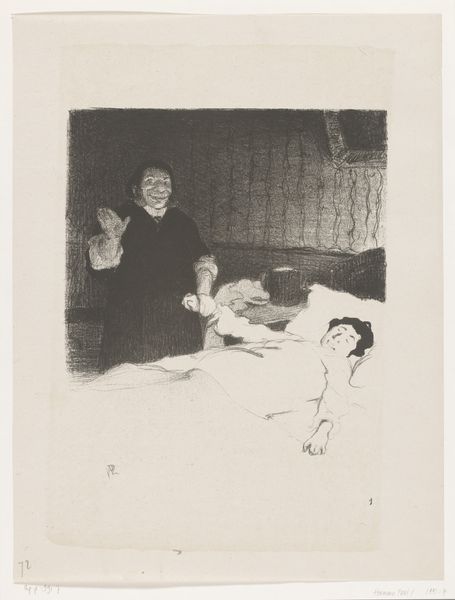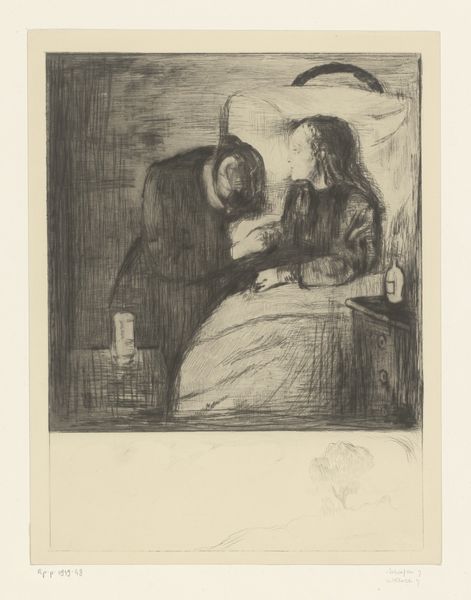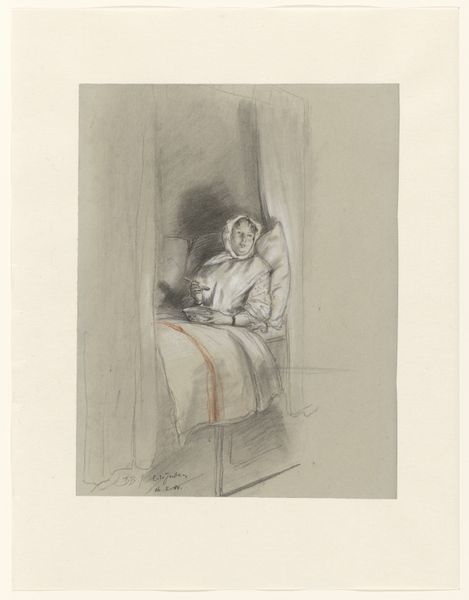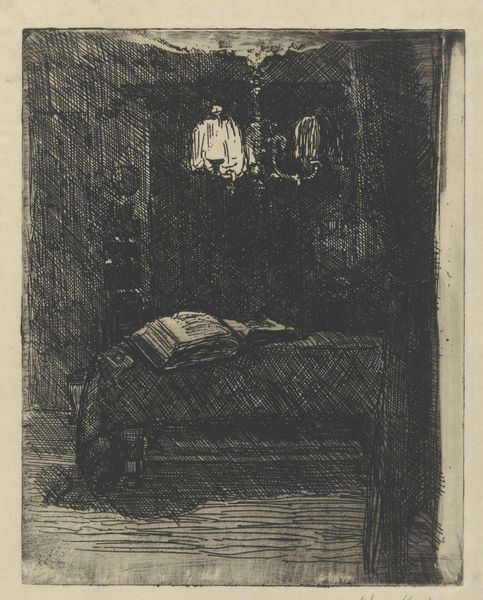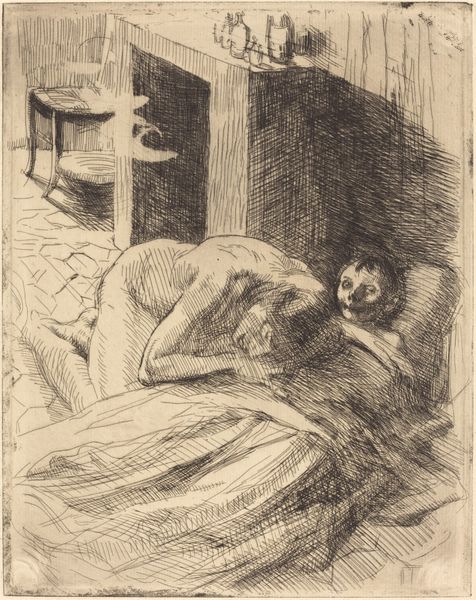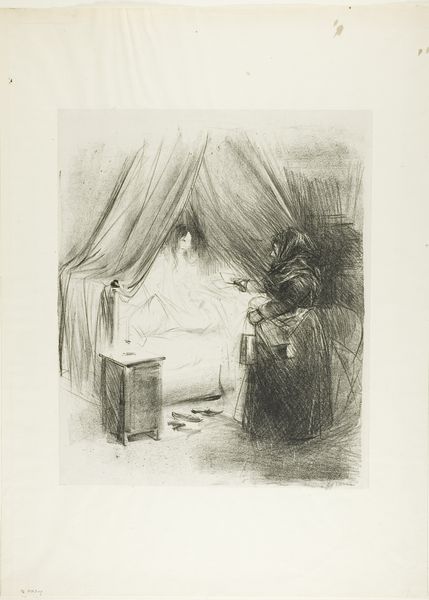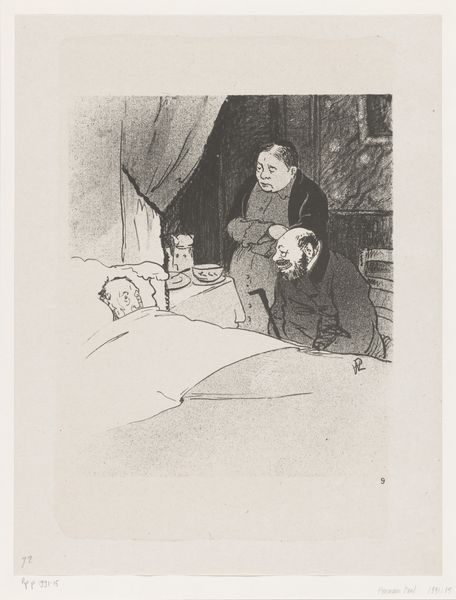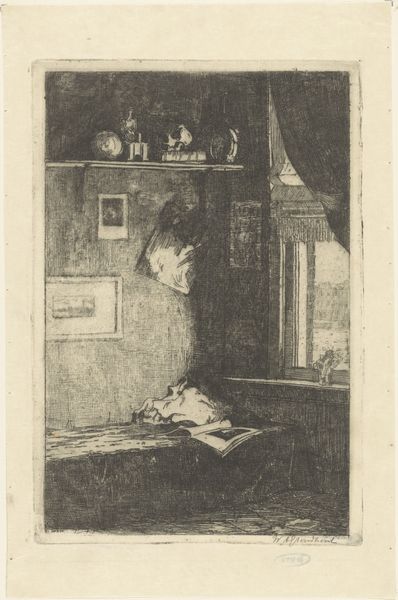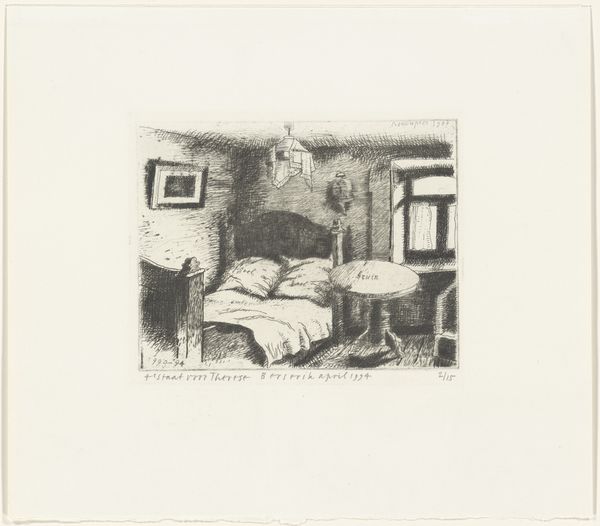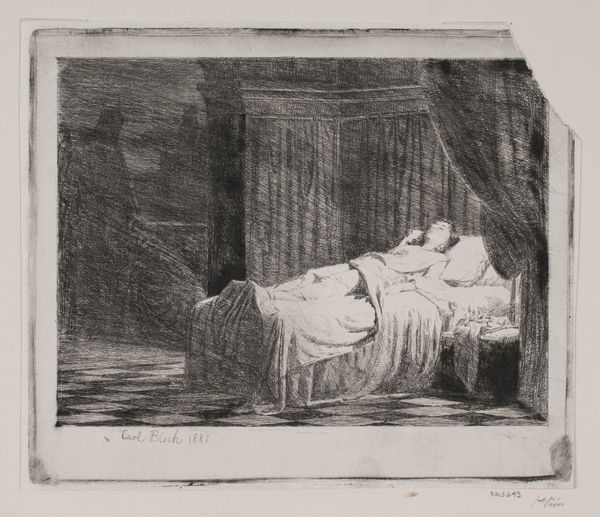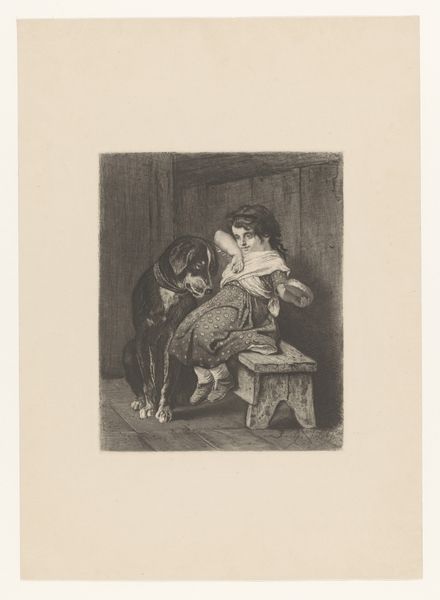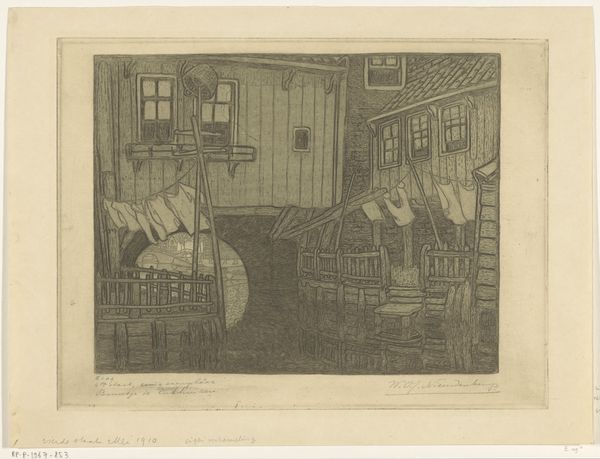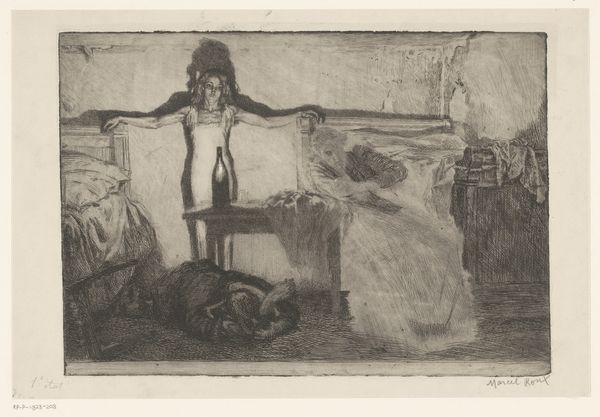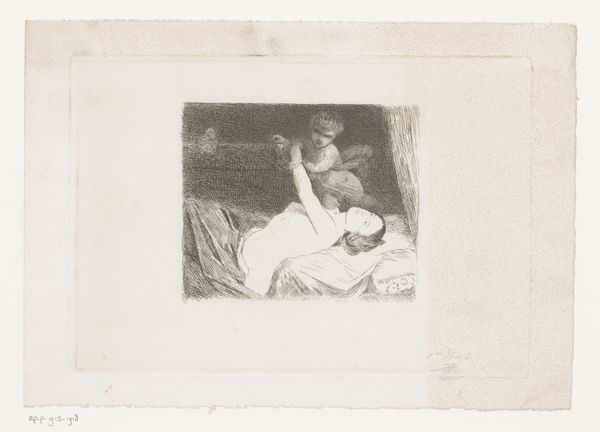
drawing, paper, pencil
#
pencil drawn
#
drawing
#
pencil sketch
#
figuration
#
paper
#
pencil drawing
#
pencil
#
genre-painting
Dimensions: height 387 mm, width 253 mm
Copyright: Rijks Museum: Open Domain
Curator: This is "Man en vrouw worden gewekt," or "Man and Woman Being Awakened," a pencil drawing by Willem (II) Steelink, made sometime between 1866 and 1928. Editor: It feels…staged, almost theatrical. The composition is boxed in, yet the shadowy figure disrupting the sleep is so present. What's your read on this drawing? Curator: I think it's a fascinating snapshot of domestic anxiety during a period of social and economic change. The stark contrast between the presumed safety of the bedroom and the intruding figure speaks to broader concerns about privacy and societal disruptions. Note that even their children are placed at the edge, near this strange visitor, indicating vulnerability within the household. Editor: You are right; vulnerability is visually clear. Notice how the figure's silhouette nearly bleeds into the darkened wall behind the bed and bassinet, highlighting a potential threat. However, if you inspect the figure’s uplifted hand, what exactly does he carry or show the couple? Curator: It's difficult to say precisely. Perhaps a religious icon, a talisman or a medical emblem? This imagery plays on the notion of awakening, but is it spiritual, medical, or a comment on socioeconomic reality? Given Steelink's history of addressing labor issues, perhaps we consider what anxieties around changing family values might also present? Editor: The use of pencil creates subtle tonality shifts, amplifying this visual tension. There's a delicacy in the cross-hatching, almost vibrating, and the contrast makes this nocturnal disturbance intense. The formal elements almost seem at odds with the thematic content. Curator: Indeed. Steelink positions the family unit, represented in art so often as a sacred theme, and contrasts the sanctity with encroaching anxieties within the space of a single room. Perhaps this work captures not just the fragility of family but also of tradition, a challenge to domestic stability amid rapid societal change? Editor: Considering your analysis, it shifts my initial feeling of “stagecraft” towards something more profound and melancholic. The drawing asks questions, which linger much after initial viewing, regarding the stability of marriage and the vulnerability of the household. Curator: Precisely. It's a powerful, albeit understated, reflection on a specific historical moment, with threads still relevant today. The social impact of disruption lingers! Editor: And for me, understanding the historic social context informs a more emotional engagement with its formal attributes: stark contrasts, subtle tonalities, balanced yet disquieting. Fascinating piece!
Comments
No comments
Be the first to comment and join the conversation on the ultimate creative platform.
